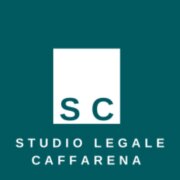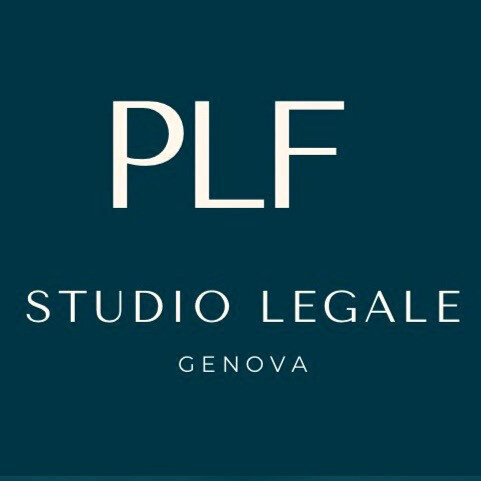Best Child Abuse Lawyers in Genoa
Share your needs with us, get contacted by law firms.
Free. Takes 2 min.
Free Guide to Hiring a Family Lawyer
List of the best lawyers in Genoa, Italy
About Child Abuse Law in Genoa, Italy
Child abuse is a deeply serious legal and social matter in Genoa and throughout Italy. Italian law defines child abuse as any act or omission resulting in physical, emotional, or psychological harm to a minor. This includes direct violence, neglect, sexual abuse, emotional torment, and any behavior that compromises a child's health, dignity, or development. The Italian legal system, including courts and law enforcement in Genoa, is committed to preventing, investigating, and prosecuting cases of child abuse, while also offering protection and support to victims.
Why You May Need a Lawyer
A lawyer with expertise in child abuse cases can be essential for several reasons. Victims, families, caregivers, or even individuals unjustly accused may need legal representation. Legal support is especially important when navigating complex investigations, court proceedings, or seeking protective measures for a child. Common situations where a lawyer may help include reporting abuse to authorities, engaging with social services, defending against unfounded allegations, seeking compensation for harm suffered, or helping to ensure a child's custody situation prioritizes their best interests. The emotional and procedural complexity of child abuse cases makes professional legal guidance crucial.
Local Laws Overview
Italian law, including statutes and codes enforced in Genoa, provides specific provisions for the protection of minors. Key aspects include:
- Punitive Measures: Criminal penalties for perpetrators of physical, emotional, and sexual abuse, with increased sentences when the victim is under age 18.
- Mandatory Reporting: Educators, healthcare providers, and certain other professionals are required by law to report suspected abuse to authorities.
- Child Protection Services: The Tribunale per i Minorenni (Juvenile Court) and social services are empowered to intervene if a child is at risk, which may include temporary or permanent removal from the abusive environment.
- Confidentiality: Investigations and legal proceedings related to child abuse are handled with great care to respect the privacy and psychological well-being of minors.
- No Statute of Limitations for Serious Offenses: In cases of grave sexual abuse, Italian law allows prosecutors to bring cases to court without a time limit.
Frequently Asked Questions
What constitutes child abuse in Genoa, Italy?
Child abuse includes physical harm, emotional or psychological torment, sexual abuse, neglect, and any conduct that endangers a child’s health, safety, or dignity.
Who is required to report suspected child abuse?
Certain professionals, such as teachers, doctors, and social workers, have a legal obligation to promptly report suspected abuse to the authorities.
Can someone be prosecuted for past abuse that happened years ago?
Yes, especially in cases of serious abuse like sexual violence, there is no statute of limitations. Other cases may have time limits depending on their severity.
What should I do if I suspect a child is being abused?
Contact local authorities immediately-such as the police or social services. Professionals are required by law to report but anyone can make a report.
What protections are available for abused children?
Measures include removal from the abusive environment, psychological support, placement with foster families, and ongoing monitoring by the Tribunale per i Minorenni.
Can a parent lose custody due to abuse allegations?
Yes. The court can suspend or revoke parental rights if abuse is proven or if a child’s well-being is at risk.
What legal steps are involved after reporting abuse?
Authorities may open a criminal investigation, and social services might assess and protect the child. Legal proceedings can follow, possibly resulting in criminal charges or custody changes.
Are legal proceedings confidential?
Yes. Child abuse cases are handled with strict confidentiality to protect the identities and welfare of minors involved.
Can an accused person defend themselves in court?
Absolutely. Anyone accused of abuse has the right to legal representation, to defend themselves, and to a fair trial.
How can a lawyer assist in child abuse cases?
A lawyer can advise on rights and obligations, represent clients in court, assist in reporting abuse, advocate for the child’s best interests, and guide families through complex legal and social procedures.
Additional Resources
If you need guidance regarding child abuse in Genoa, consider reaching out to:
- Tribunale per i Minorenni di Genova: The local Juvenile Court deals with child protection, custody, and abuse cases.
- Servizi Sociali del Comune di Genova: The city’s Social Services Department provides support, intervention, and assistance for at-risk children and families.
- Telefono Azzurro: A national helpline and NGO offering support and reporting assistance for child abuse situations (available via phone and online in Italian).
- Polizia di Stato (Police): The police handle emergency interventions and criminal investigations related to abuse allegations.
- Ordine degli Avvocati di Genova: The Bar Association can help you find specialized lawyers in child abuse cases.
Next Steps
If you believe a child is at immediate risk, contact emergency services or the police right away. For non-urgent concerns or if you need to seek advice, consult a lawyer experienced in child abuse law. It is wise to gather all relevant information (such as documentation, witness statements, or medical reports) and bring them to your consultation. Legal professionals can explain your rights, the likely process, and provide representation to help ensure the child’s protection and your legal interests are safeguarded. Do not hesitate to seek support from local agencies or national helplines for guidance during this challenging time.
Lawzana helps you find the best lawyers and law firms in Genoa through a curated and pre-screened list of qualified legal professionals. Our platform offers rankings and detailed profiles of attorneys and law firms, allowing you to compare based on practice areas, including Child Abuse, experience, and client feedback.
Each profile includes a description of the firm's areas of practice, client reviews, team members and partners, year of establishment, spoken languages, office locations, contact information, social media presence, and any published articles or resources. Most firms on our platform speak English and are experienced in both local and international legal matters.
Get a quote from top-rated law firms in Genoa, Italy — quickly, securely, and without unnecessary hassle.
Disclaimer:
The information provided on this page is for general informational purposes only and does not constitute legal advice. While we strive to ensure the accuracy and relevance of the content, legal information may change over time, and interpretations of the law can vary. You should always consult with a qualified legal professional for advice specific to your situation.
We disclaim all liability for actions taken or not taken based on the content of this page. If you believe any information is incorrect or outdated, please contact us, and we will review and update it where appropriate.










